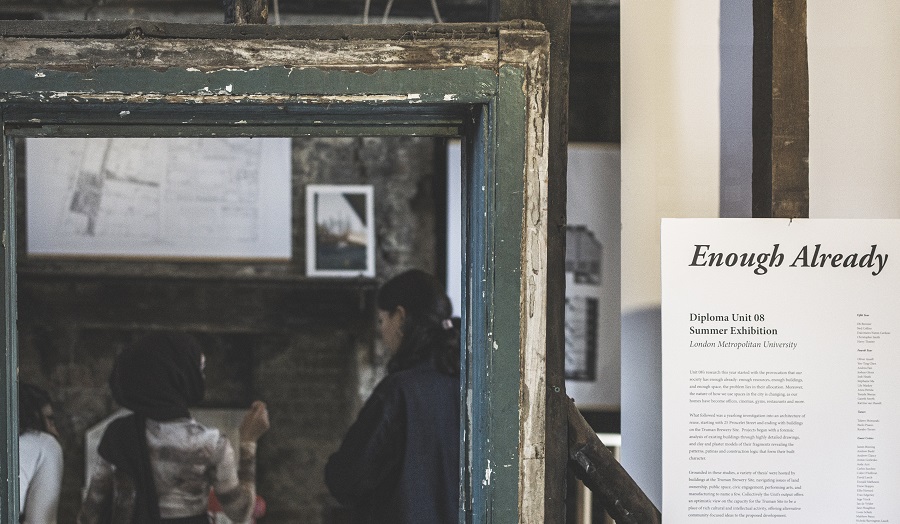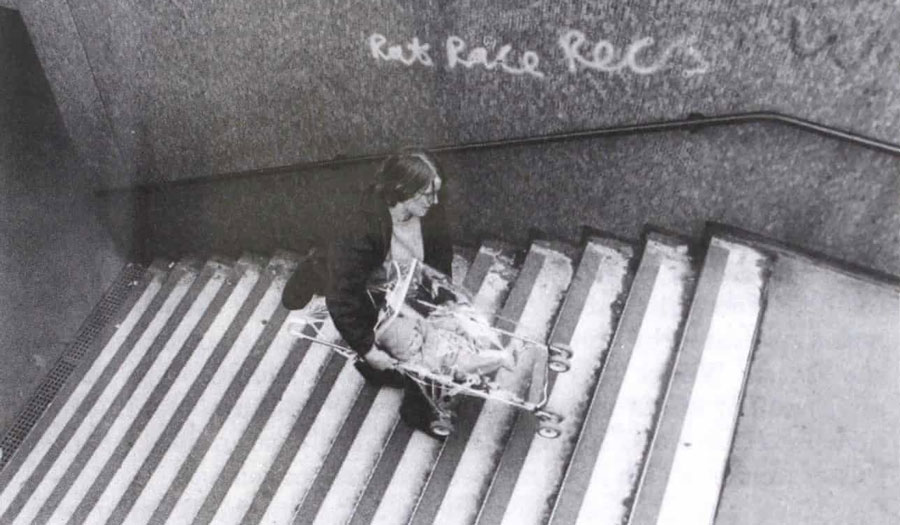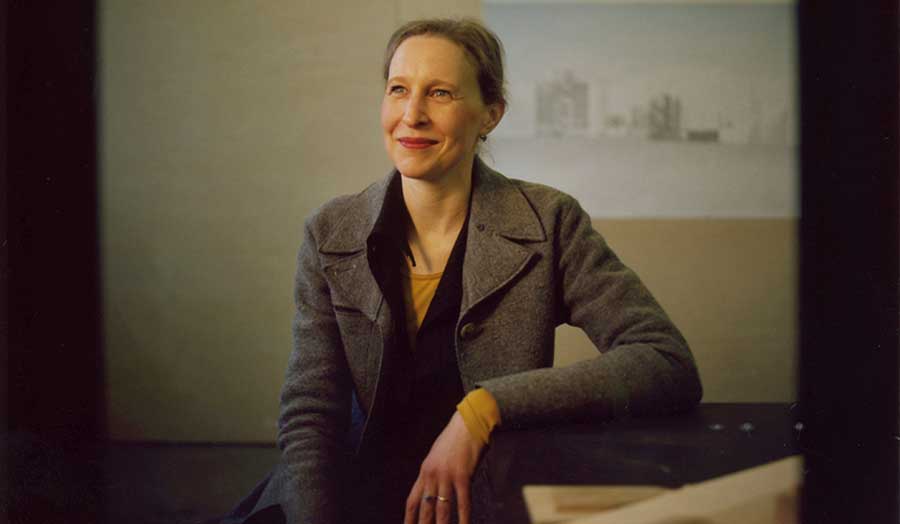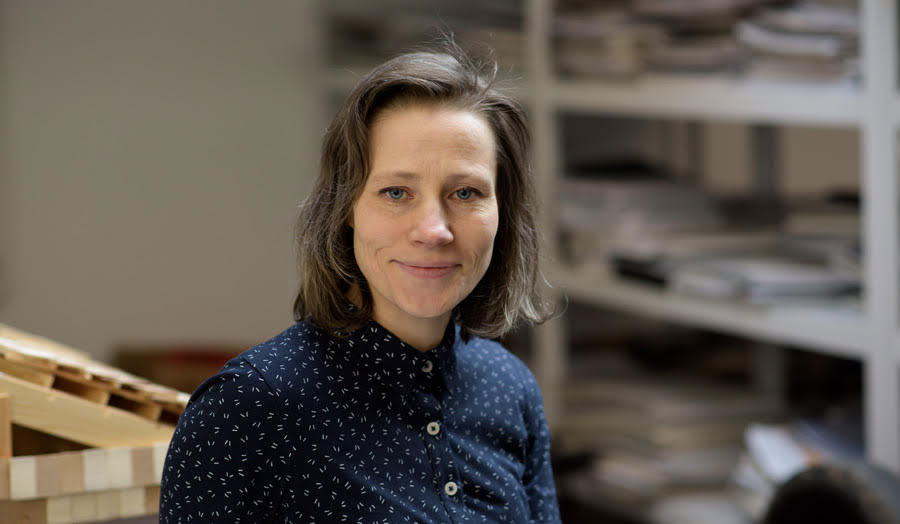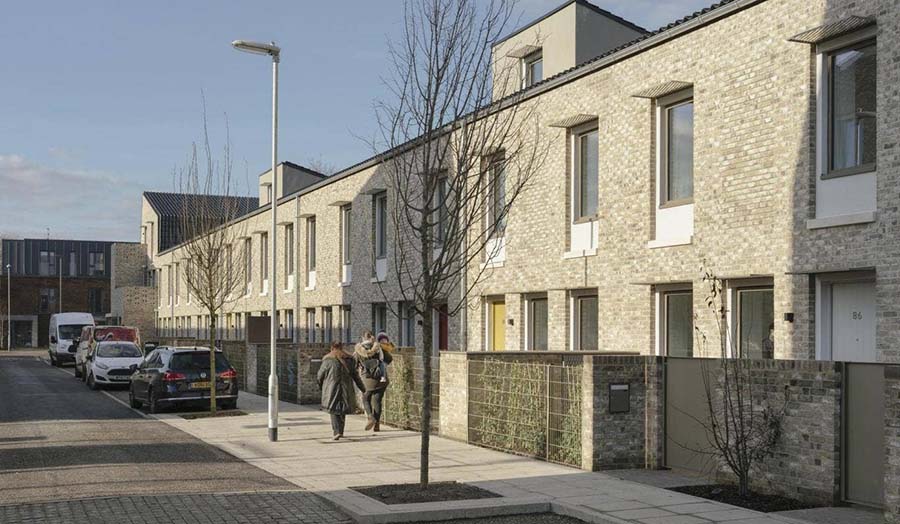Why study this course?
This practice-based course will prepare you for managing architectural projects and is the final step toward registration as an architect in the UK.
More about this course
The course is designed to ensure high standards in the professional practice of architecture and to give you the opportunity to extend your area of competence. It focuses on the design process but tempers this concern with the knowledge and experience needed for ideas to become reality in a way that is ethical, economical, efficient and legal.
Students are recruited from a wide range of design professions in the construction industry. The teaching will examine critical events in your own work experience, that of other course members and of the profession at large. The course will also encourage you to feel confident with higher levels of professional responsibility. Our students have had considerable successes in the Royal Institute of British Architects (RIBA) President's medals.
You'll benefit from the course's central London location and its close proximity to its internationally renowned creative and industry hubs. The School's extensive networks encourage graduates of the course to expand their knowledge and skills through lectures, events and careers advice, leaving them with excellent career prospects.
Each year various professional bodies and practitioners contribute to the lecture programme and activities. Current contributors include representatives from The Architects Registration Board, Assael Architecture Ltd, DRDH Architects, Karakusevic-Carson Architects, 5-Plus Architects and Keith Williams Architects.
The formal title of this course is Postgraduate Certificate in Professional Practice in Architecture (RIBA 3). This is what will be shown on the certificate and transcript.
Please note, this is a year-long course that runs a choice of six or 12-month pathways to suit each individual.
Assessment
The course is assessed in four ways. There are three elements of coursework and documentation related to practical experience and its assimilation, in the form of a case study, a completed RIBA Practical Training Record or its equivalent and a critical self-evaluation. The fourth part of the assessment consists of two unseen examinations. A final viva voce examination assesses all four elements in a summative context.
Fees and key information
Apply nowEntry requirements
You will be required to have:
- RIBA Part 1 and Part 2 exemption by examination at a recognised UK or Eire school, or obtained RIBA or ARB Part 1 and Part 2 exemption by interview.
- documentary evidence of practical experience to conform with the RIBA Practical Training Scheme - 24 months of experience in total is required to sit the part 3 examination, of which 12 months minimum should be undertaken in the EEA, Channel Islands or the Isle of Man under the direct supervision of an architect. Further guidance is available on the RIBA website
Applicants who have completed their qualifications outside of the UK or Eire should contact the ARB to obtain confirmation of their eligibility to take the Part 3 Exam.
In cases where exemption from the full year of post-part 2 training is required, evidence of protracted experience at high levels of responsibility must be submitted, sufficient to allow the course tutor to endorse an application for exemption to the RIBA's Co-ordinator for Practical Training.
Applicants are requested to include a personal statement as part of the initial application form and to upload a copy of the award certificate/transcripts for both their Part 1 and Part 2 qualifications. Also, a current CV and employer reference.
Accreditation of Prior Learning
Any university-level qualifications or relevant experience you gain prior to starting university could count towards your course at London Met. Find out more about applying for Accreditation of Prior Learning (APL).
English language requirements
To study a degree at London Met, you must be able to demonstrate proficiency in the English language. If you require a Student visa (previously Tier 4) you may need to provide the results of a Secure English Language Test (SELT) such as Academic IELTS. This course requires you to meet our standard requirements.
If you need (or wish) to improve your English before starting your degree, the University offers a Pre-sessional Academic English course to help you build your confidence and reach the level of English you require.
Modular structure
The modules listed below are for the academic year 2023/24 and represent the course modules at this time. Modules and module details (including, but not limited to, location and time) are subject to change over time.
Year 1 modules include:
- This module currently runs:
- spring semester - Wednesday evening
RIBA3 is a 60-credit module that encompasses the prescribed components which you must pass separately register as an architect to the Architect's Registration Board as having passed Part 3. When you can use the protected title Architect, in accordance with the Architects Act 1997, you will have achieved a threshold level of competence (in terms of knowledge and skill) and professionalism (in terms of conduct and responsibility) against nationally approved standards, in order to safeguard clients, the users of buildings and wider society.
As a single module course, the aims for the module mirror those of the course (see Course Specification for more details). The primary aim is to assess you against the RIBA/ARB Criteria for Part 3. These criteria ask you to demonstrate awareness, understanding, knowledge and ability against a set of key requirements through four components: the PEDR, a Case Study, a Statement of Experience and Intent (i.e. a career evaluation) as well as your performance in both written and oral examinations.
Beyond these fundamental components and your own experience, this course requires you to think critically about the role of the architect in society, questioning what it means to act both effectively and ethically within the legal, social and commercial structures, and context for practice, of the UK in particular.
What our students say
"The Professional Practice Part 3 programme at London Metropolitan University is comprehensive and informative with a high degree of autonomous learning required. The course is supportive with thorough, realistic and well-prepared teaching."
Jonathan Evans, course graduate
"I would like to take this opportunity to say how glad I am to have chosen London Met to undertake my Part 3, and this is thanks to [the course tutors]! I was pleased to have met someone as committed and hardworking as [Mary Kelly], not only do I feel I’ve learnt a lot but her good will and positive attitude is very encouraging for moving forward!
I would describe my experience as unexpected. There is something quite unique about the way one learns and the way the course is structured. There are no right answers but instead a multitude of possible solutions. Also, the study group really is an incredible resource for learning and exchange."
Berenice Martin, course graduate
Where this course can take you
RIBA Part 3 and subsequent registration with the Architects Registration Board (ARB) allow you to practise with the title of architect in the United Kingdom and European community.
Important information about this course
We're committed to continuously improving our degree courses to ensure our students receive the best possible learning experience. Many of the courses in our School of Art, Architecture and Design are currently under review for 2023-24 entry. We encourage you to apply as outlined in the how to apply section of this page and if there are any changes to your course we will contact you. All universities review their courses regularly and this year we are strengthening our art, architecture and design courses to better reflect the needs of employers and ensure you're well-equipped for your future career.
Important information about the teaching location of this course
We currently have three locations in Holloway, Aldgate and Shoreditch. As we evolve as a University, we'll be reviewing the use of these spaces to ensure all our students have access to the facilities and study areas they need to succeed. This means the campus where this course is taught may change over time.
The experience of our students will always be our top priority and we'll notify applicants and students of any changes to their teaching location at the earliest opportunity.
Additional costs
Please note, in addition to the tuition fee there may be additional costs for things like equipment, materials, printing, textbooks, trips or professional body fees.
Additionally, there may be other activities that are not formally part of your course and not required to complete your course, but which you may find helpful (for example, optional field trips). The costs of these are additional to your tuition fee and the fees set out above and will be notified when the activity is being arranged.
Stay up to date
Follow our School of Art, Architecture and Design on Twitter, Facebook and Instagram to stay up to date with everything that's happening in our creative community.
For an insight into what's going on with the Metropolitan Architecture Student Society you can also follow MASS on Instagram and Twitter.
How to apply
Use the apply button to begin your application.
If you require a Student visa and wish to study a postgraduate course on a part-time basis, please read our how to apply information for international students to ensure you have all the details you need about the application process.
When to apply
You are advised to apply as early as possible as applications will only be considered if there are places available on the course.
Please note, this is a year-long course that runs a choice of six or 12-month pathways to suit each individual.
To find out when teaching for this degree will begin, as well as welcome week and any induction activities, view our academic term dates.






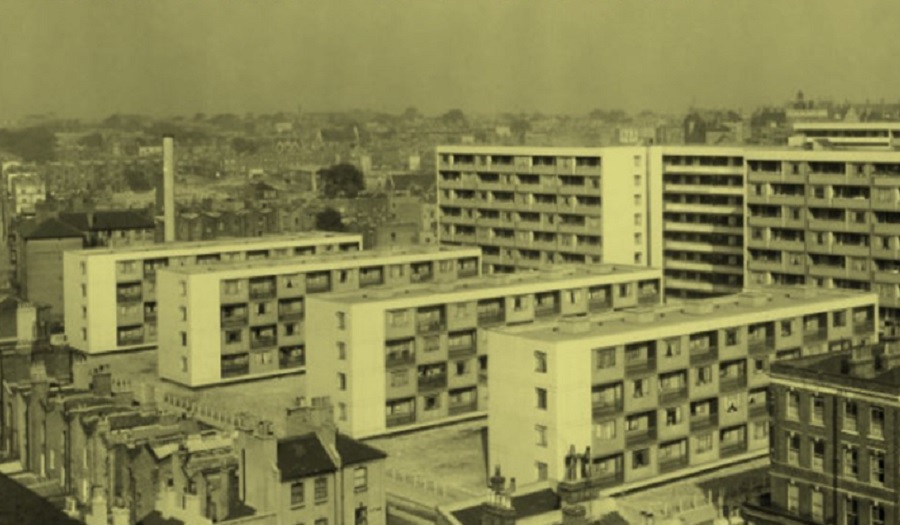
.jpg)
